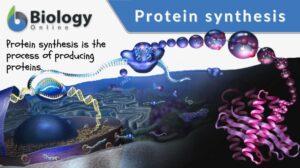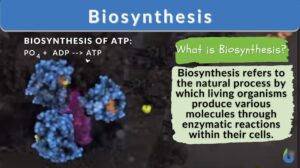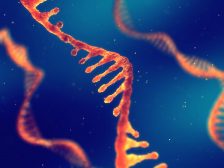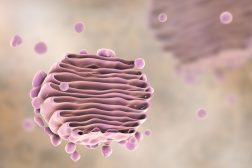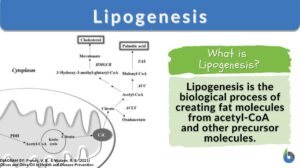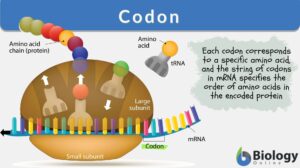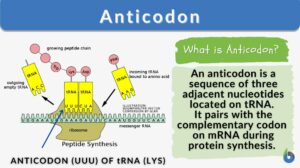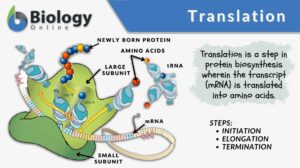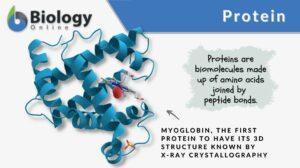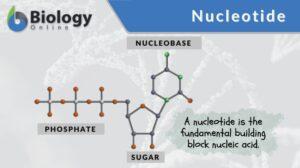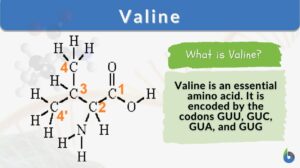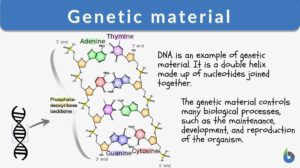Search Results for: synthesis
Protein synthesis
Protein synthesis is the process of creating protein molecules. In biological systems, it involves amino acid synthesis,... Read More
Biosynthesis
Biosynthesis Definition Biosynthesis refers to the production (synthesis) of a complex chemical compound from simpler... Read More
Genetic Information and Protein Synthesis
Genetic Code Genes are sequences of DNA nucleotides that carry and transmit the information specifying amino acid sequences... Read More
Dehydration reaction
What is dehydration synthesis? A dehydration reaction is a form of biochemical reaction wherein a water molecule is lost or... Read More
Endoplasmic reticulum
Endoplasmic Reticulum Definition The endoplasmic reticulum is a membrane-bound organelle in cells of eukaryotic cells... Read More
Protein Synthesis
If you have jumped straight to this page, you may wish to look at the previous tutorial about DNA, which gives background... Read More
Chemosynthesis
Definition noun, plural: chemosyntheses The production of a more complex chemical compound by combining two or more simpler... Read More
Role of Golgi Apparatus & Endoplasmic Reticulum in Protein Synthesis
Continued from the previous tutorial that introduces protein synthesis... mRNA and tRNA mRNA leaves the nucleus and enters... Read More
Organic synthesis
Definition noun A form of chemical synthesis concerned with the production of organic compounds Supplement Example of... Read More
Rough endoplasmic reticulum
Rough Endoplasmic Reticulum Definition The rough endoplasmic reticulum (rough ER or rER) is a membrane-bound organelle... Read More
Photosynthesis
Photosynthesis is a physio-chemical process carried out by photo-auto-lithotrophs by converting light energy into chemical... Read More
Lipogenesis
Lipogenesis Definition Lipogenesis is the process of producing lipid or fat to store biochemical energy for later metabolic... Read More
Enzymatic synthesis
Enzymatic synthesis synthesis by enzymes. See:... Read More
Gene synthesis
Gene synthesis (Science: molecular biology) The complete synthesis of a gene using a dna synthesiser (gene machine), or the... Read More
Metabolism
Metabolism Definition What is metabolism in the body? Metabolism encompasses the various biochemical processes, reactions,... Read More
Smooth endoplasmic reticulum
Smooth Endoplasmic Reticulum Definition Smooth endoplasmic reticulum (sER) is part of or a region in the endoplasmic... Read More
Nucleic acid
Nucleic Acid Definition A nucleic acid refers to any of the group of complex compounds consisting of chains of monomers of... Read More
Glycolysis
What is Glycolysis and Why is it Important? Glycolysis is a metabolic pathway by which the 6-carbon molecule of glucose is... Read More
Ribonucleic acid
Ribonucleic Acid Definition noun (uncountable), ribonucleic acids ri·bo·nu·cle·ic ac·id, raɪboʊnjuːkliːɪk... Read More
Chemiosmosis
Chemiosmosis Definition What is chemiosmosis? In biology, chemiosmosis refers to the process of moving ions (e.g. protons)... Read More
Translation
Translation, in general, is the conversion of something into another form, such as a word from one language to another. But... Read More
Synthesis phase
Definition noun (cell biology) A sub-phase in the interphase wherein the cell primarily duplicates its DNA via... Read More
Kiliani-fischer synthesis
Kiliani-fischer synthesis a synthetic procedure for the extension of the carbon atom chain of aldoses by treatment with... Read More
Mature mRNA
Mature mRNA Definition Mature mRNA is the completely processed mRNA molecule in the cell of eukaryotes. The mRNA is a type... Read More
Nucleotide
Nucleotide Definition A nucleotide is regarded as the basic building block of nucleic acid (e.g. DNA and RNA). A nucleic... Read More
Protein Activity and Cellular Metabolism
Protein Binding Sites The ability of various molecules and ions to bind to specific sites on the protein surface forms the... Read More
Eubacteria
Eubacteria are prokaryotic microorganisms consisting of a single cell lacking a nucleus and containing DNA is a single... Read More
Genetic material
Genetic Material Definition What is genetic material? Genetic material is the hereditary substance in the cell. It carries... Read More
Endomembrane system
Ever wondered how biomolecules are made within the cell and then they are released outside the cell for use by the body?... Read More
Messenger ribonucleic acid
Definition noun plural: messenger ribonucleic acids mes•sen•ger ri•bo•nu•cle•ic ac•id, ˈmɛ.sɪn.dʒəɹ... Read More
